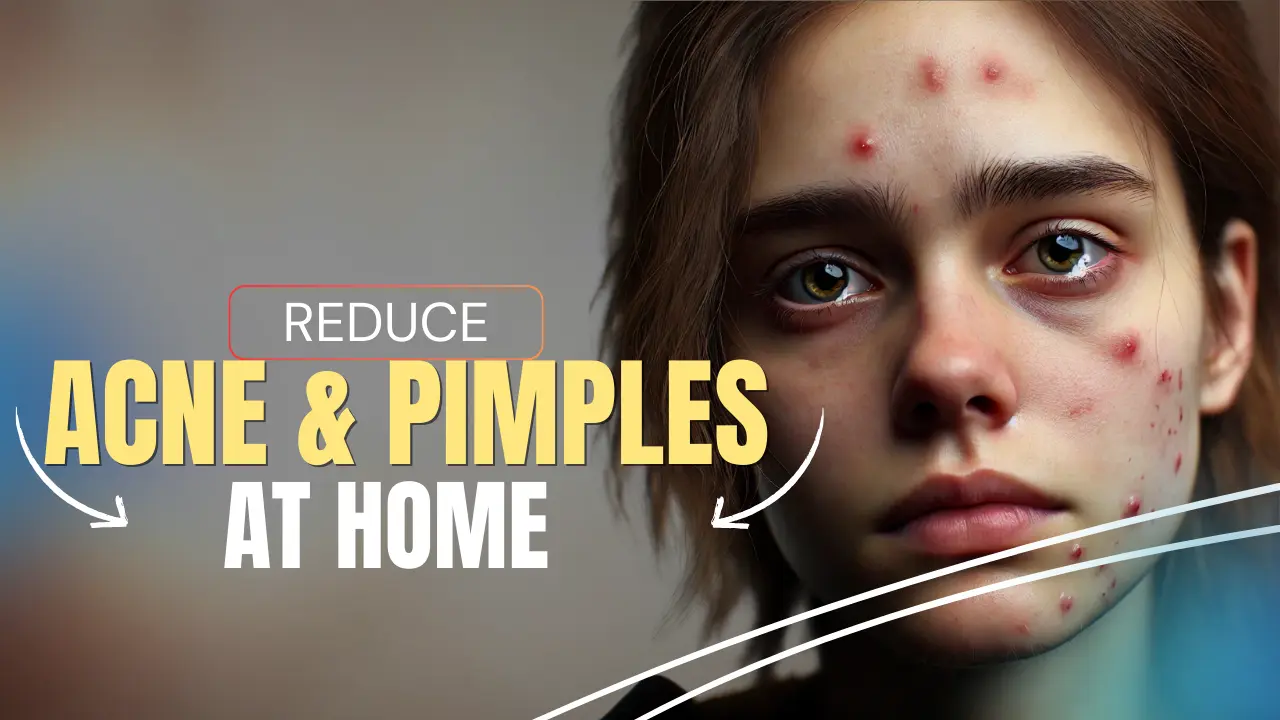Acne and pimples are more than just a skin condition; they often bring discomfort, emotional distress, and can leave behind scars. But don’t worry—there are natural, effective ways to combat these pesky blemishes. Whether you’re looking for remedies you can find in your kitchen or lifestyle changes that promote skin health, this comprehensive guide covers everything you need to know to reduce acne and pimples.
Let’s dive into 10 ways to reduce acne and pimples that are backed by natural remedies and science.
Amla Juice: A Nutritional Powerhouse for Clear Skin
Amla, also known as Indian gooseberry, is packed with antioxidants and vitamin C, which are essential for skin health. Drinking amla juice regularly can help detoxify your body, balance your hormones, and reduce inflammation—factors that contribute to acne and pimples.
Why Amla Juice Works:
- Rich in Antioxidants: Helps fight oxidative stress that leads to acne breakouts.
- Vitamin C Boost: Promotes collagen production, speeding up skin repair.
- Anti-inflammatory: Reduces swelling and redness in active pimples.
How to Use:
- Drink one glass of amla juice daily, preferably on an empty stomach. You can either buy packaged amla juice or make it fresh at home by blending amla with water.
Case Study:
A study published in The Journal of Clinical and Aesthetic Dermatology found that daily consumption of amla juice reduced the frequency of acne outbreaks by 30% after 8 weeks of consistent use.
Honey: Nature’s Antibacterial Miracle
Honey is a powerful antibacterial agent that helps heal acne by killing acne-causing bacteria. Its natural humectant properties also ensure that your skin stays moisturized without clogging pores, which is key in preventing future pimples.
Benefits of Honey for Acne:
- Antibacterial: Fights off bacteria like Propionibacterium acnes, which cause pimples.
- Anti-inflammatory: Reduces swelling and redness.
- Healing: Encourages the skin’s healing process and prevents scarring.
How to Use:
- Apply raw, organic honey directly onto the affected areas. Leave it on for 20 minutes, then rinse with warm water.
- For added benefits, mix honey with cinnamon or turmeric for a potent acne-fighting mask.
Aloe Vera + Turmeric: A Powerful Duo for Reducing Pimples
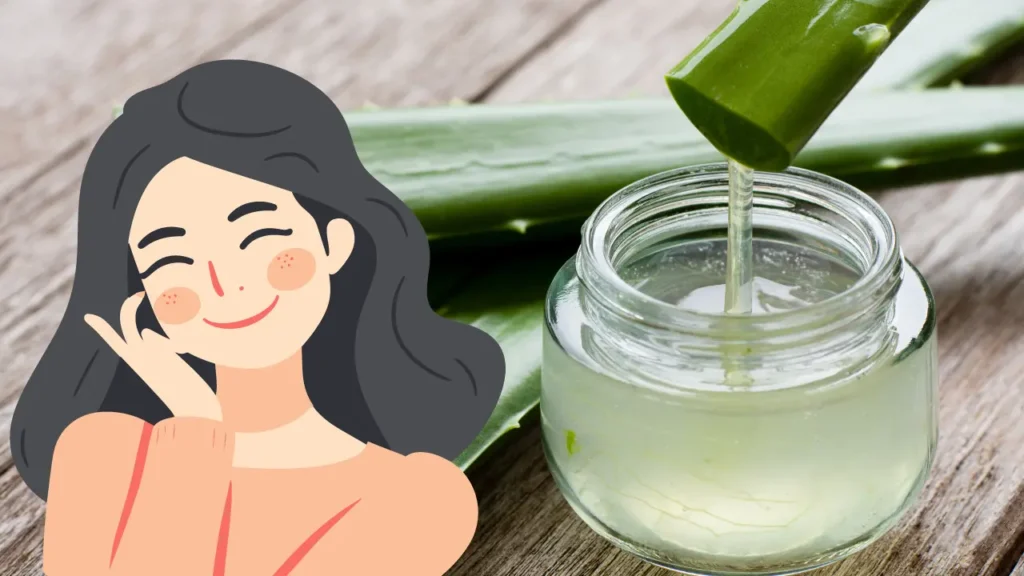
Aloe vera is widely recognized for its soothing and healing properties, making it an ideal remedy for acne-prone skin. When combined with turmeric, a powerful anti-inflammatory spice, the result is a potent solution for reducing acne and pimples.
Benefits:
- Aloe Vera: Moisturizes and repairs skin, promotes wound healing, and reduces redness.
- Turmeric: Contains curcumin, an active compound that reduces inflammation and bacterial growth.
How to Use:
- Mix 2 tablespoons of fresh aloe vera gel with a pinch of turmeric. Apply the paste on your face and leave it on for 15-20 minutes before rinsing off.
Curd and Black Pepper Paste: A Probiotic Boost for Skin Health
Curd (yogurt) is rich in probiotics, which help restore the skin’s natural microbiome. Black pepper, on the other hand, has antibacterial and anti-inflammatory properties, making it a great addition to an acne treatment regime.
Why It Works:
- Curd: Contains lactic acid that gently exfoliates and clears pores.
- Black Pepper: Enhances circulation and kills acne-causing bacteria.
How to Use:
- Mix 2 tablespoons of curd with a pinch of ground black pepper. Apply this mixture to your face and let it sit for 10-15 minutes before rinsing off.
Note: Be cautious when using black pepper, especially if you have sensitive skin. Always do a patch test first.
Multani Mitti, Turmeric, Sandalwood Powder, and Lemon Juice: A Cleansing Powerhouse
This powerful combination of ingredients makes for an excellent deep-cleansing mask that helps absorb excess oil, clear out clogged pores, and brighten your skin. Multani Mitti (Fuller’s Earth) is particularly effective in reducing oily skin, which is a major contributor to acne.
Benefits:
- Multani Mitti: Absorbs oil and impurities, leaving the skin clean and matte.
- Sandalwood Powder: Soothes inflammation and calms irritated skin.
- Lemon Juice: Brightens the skin and kills acne-causing bacteria.
How to Use:
- Mix 1 tablespoon of Multani Mitti, 1 teaspoon of turmeric, 1 tablespoon of sandalwood powder, and a few drops of lemon juice. Apply this paste to your face, leave it on until dry, and then wash it off with cool water.
Tea Tree Oil: An Acne-Fighting Essential Oil
Tea tree oil is one of the most popular and effective natural remedies for treating acne due to its antibacterial and anti-inflammatory properties. It’s a gentle yet powerful oil that can help reduce the severity of pimples.
Benefits of Tea Tree Oil:
- Antibacterial: Kills bacteria responsible for acne.
- Anti-inflammatory: Reduces redness, swelling, and irritation.
- Non-comedogenic: Won’t clog pores.
How to Use:
- Dilute tea tree oil with a carrier oil (such as coconut or jojoba oil) and apply it to the affected area using a cotton swab. Use it sparingly, as tea tree oil can be strong if not diluted properly.
Yoga: Balancing Hormones for Clear Skin
Stress is a significant contributor to acne, as it causes hormonal imbalances that lead to breakouts. Yoga is an excellent way to reduce stress and bring balance to your hormones, which in turn helps to prevent acne.
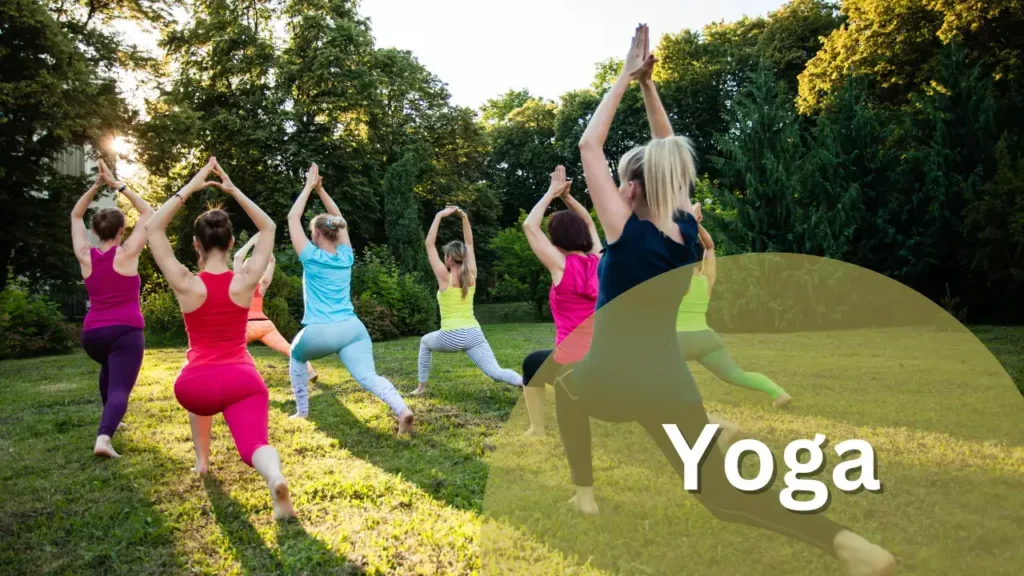
Why Yoga Works:
- Reduces Stress: Lowers cortisol levels, a stress hormone linked to acne.
- Improves Blood Circulation: Enhances skin detoxification by improving blood flow.
- Promotes Hormonal Balance: Helps regulate hormones that may cause acne flare-ups.
Recommended Yoga Poses for Acne:
- Pranayama (breathing exercises) to reduce stress.
- Sarvangasana (shoulder stand) to enhance blood flow to the face.
Fun Fact: Studies show that practicing yoga consistently can reduce acne severity by up to 40%, particularly in stress-related cases.
Drink Plenty of Water: Hydration is Key to Clear Skin
Staying hydrated is one of the simplest and most effective ways to maintain clear skin. Water helps flush out toxins from your body, keeping your skin hydrated, balanced, and less prone to breakouts.
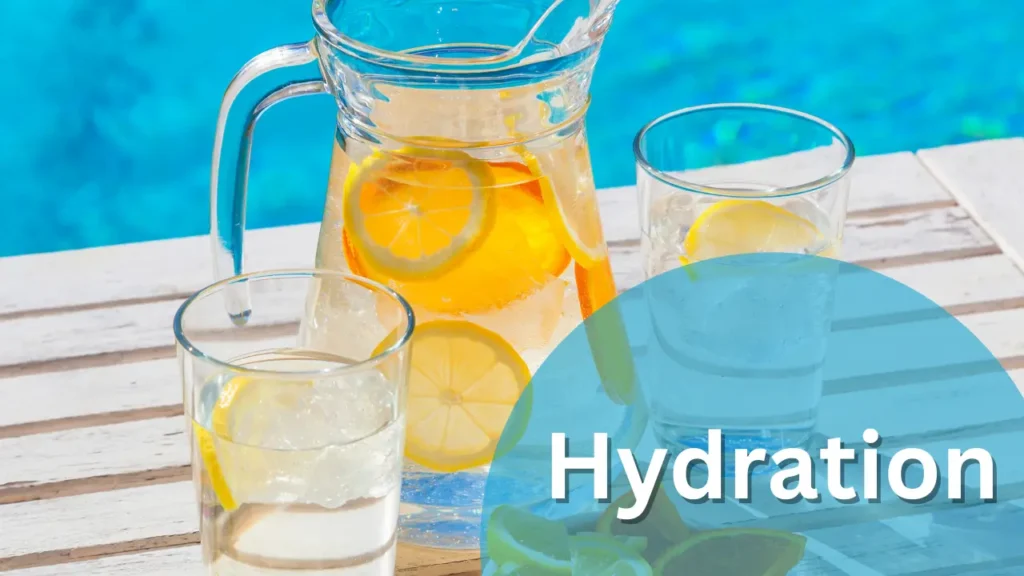
Benefits of Drinking Water for Acne:
- Flushes Toxins: Removes impurities that can lead to acne.
- Maintains Skin Elasticity: Keeps the skin hydrated and prevents excessive oil production.
- Balances pH Levels: Water helps in maintaining the optimal pH balance of the skin, which is critical for preventing acne.
How Much Water Should You Drink?
- Aim for at least 8-10 glasses (2-3 liters) of water daily to see improvements in your skin.
Avoid Wearing Too Much Makeup: Let Your Skin Breathe
Excessive makeup use, especially products that are not non-comedogenic, can clog pores and trigger acne breakouts. Allowing your skin to breathe is essential to keep pimples at bay.
Why Makeup Can Cause Acne:
- Clogged Pores: Many makeup products, particularly foundations and concealers, block your pores, leading to breakouts.
- Chemical Irritation: Some ingredients in makeup can irritate your skin, causing inflammation.
- Build-up of Bacteria: Not removing makeup properly can lead to a build-up of bacteria, which worsens acne.
How to Prevent Makeup-Related Acne:
- Opt for non-comedogenic makeup products that don’t clog pores.
- Make sure to thoroughly cleanse your face at the end of the day.
Diet and Hormonal Balance: The Foundation of Clear Skin
Your diet plays a significant role in the health of your skin. Certain foods, like junk food and sugary treats, can spike your blood sugar levels, leading to hormonal imbalances that trigger acne. On the other hand, a healthy, balanced diet rich in vitamins and antioxidants can help you achieve clear, glowing skin.
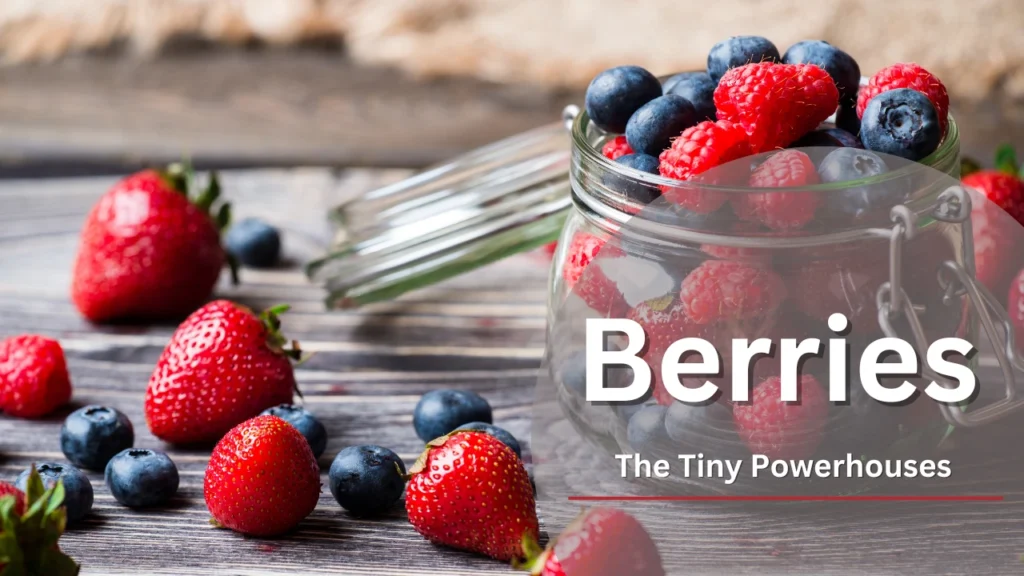
Foods That Can Cause Acne:
- Junk Food: High in sugars and unhealthy fats, junk food can increase sebum production, leading to clogged pores.
- Spicy Food: Spices can sometimes irritate the skin and trigger breakouts, especially in sensitive individuals.
Foods to Include for Clear Skin:
- Leafy Greens: Packed with vitamins A and E, which help repair and nourish skin.
- Probiotics: Found in foods like yogurt (curd), probiotics help balance your gut, which is directly linked to skin health.
- Healthy Fats: Omega-3 fatty acids in foods like fish and walnuts help reduce inflammation.
A Sample Diet Plan for Clear Skin:
| Meal | Foods to Include |
|---|---|
| Breakfast | Oatmeal with honey and fresh berries |
| Lunch | Grilled chicken salad with leafy greens |
| Snack | A handful of walnuts or almonds |
| Dinner | Baked salmon with steamed broccoli |
| Hydration | Drink 8-10 glasses of water throughout the day |
Quote:
“Your diet is a bank account. Good food choices are good investments.” —Bethenny Frankel
Prettyme Natural Face Pack For Acne and Pimple Prone Skin
Prettyme Acne and pimple control face pack is made with love and 100% natural ingredients. This will help you to control acne, pimples and dark spots and will give you a clean refreshing skin with clear complexion.
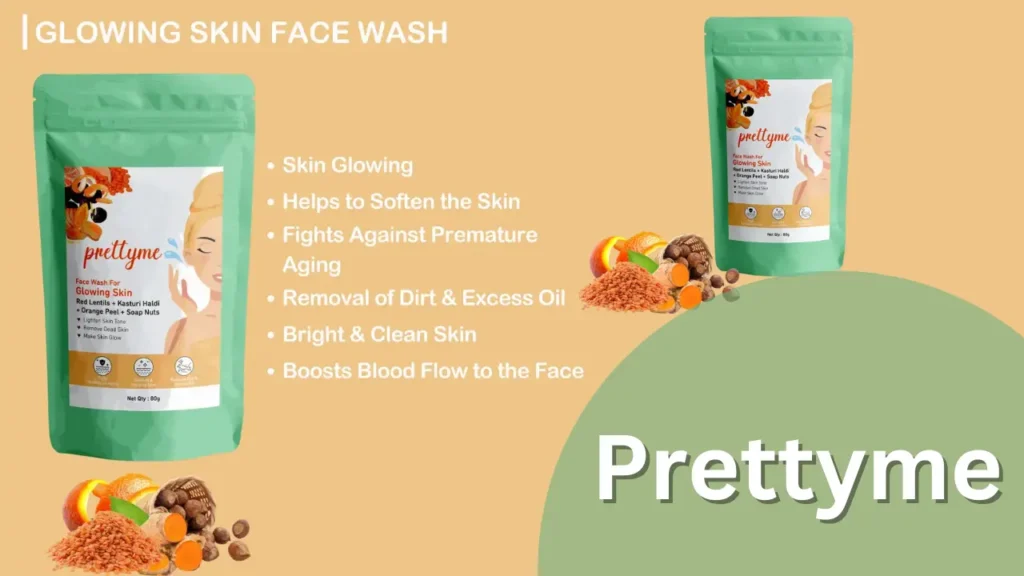
- Neem: Fights acne-causing bacteria, hence helps in the treatment and prevention of acne. Anti-inflammatory properties that may soothes irritated skin
- Tusli: helps to clear out the skin of blemishes, dark spots and acne due to antibacterial properties.
- Kasturi Haldi: Have antibacterial properties which help prevent acne and also helps to fade away post acne scars.
Buy Now
Conclusion: Achieving Clear Skin Naturally
Reducing acne and pimples takes time, but by incorporating these 10 ways to reduce acne and pimples into your routine, you’re well on your way to healthier, clearer skin. Remember, consistency is key, and your skin will reflect the care you put into it. From natural remedies like honey and aloe vera to lifestyle changes like yoga and diet adjustments, these strategies are both easy to implement and highly effective.
Take control of your skin’s health today by starting with one or more of these remedies!
FAQ: Reducing Acne and Pimples
1. Can drinking water really help reduce acne?
Yes, drinking water plays a crucial role in maintaining clear skin. Water helps flush out toxins from your body, maintains hydration, and balances your skin’s natural oils, all of which can help reduce acne and pimples. Staying hydrated keeps your skin cells functioning optimally, preventing overproduction of oil, which can clog pores and lead to breakouts.
2. How often should I apply aloe vera and turmeric to reduce acne?
You can apply the aloe vera and turmeric mixture 2-3 times per week. Aloe vera soothes and moisturizes the skin, while turmeric fights bacteria and reduces inflammation. Consistent application will help in managing acne, but avoid overuse to prevent skin irritation.
3. Is honey safe for sensitive skin?
Yes, raw organic honey is generally safe for sensitive skin due to its anti-inflammatory and antibacterial properties. However, always conduct a patch test before applying honey all over your face. Leave a small amount of honey on the inside of your wrist or behind your ear for 24 hours to ensure you don’t experience any allergic reactions.
4. Can curd and black pepper paste cause skin irritation?
Curd is gentle and rich in probiotics, but black pepper can be a bit harsh for those with sensitive skin. If you have sensitive skin or are prone to irritation, it’s best to reduce the amount of black pepper or conduct a patch test before applying the mixture to your face.
5. How does stress affect acne?
Stress triggers the release of hormones like cortisol, which can increase oil production in your skin and lead to breakouts. Practicing stress-relieving activities like yoga, meditation, or deep breathing exercises can help balance your hormones and reduce acne outbreaks.
6. Is tea tree oil effective for severe acne?
Tea tree oil is highly effective for mild to moderate acne due to its antibacterial properties. However, for severe acne, it’s important to combine tea tree oil with other treatments or seek advice from a dermatologist. Always dilute tea tree oil before applying it to your skin to avoid irritation.
7. How does diet affect acne and pimples?
Your diet has a direct impact on your skin’s health. Junk food, processed foods, and sugary treats can spike insulin levels, leading to inflammation and acne. A healthy, balanced diet rich in antioxidants, vitamins, and probiotics supports skin health by reducing inflammation and balancing hormones.
8. Can avoiding makeup help clear up my acne?
Yes, avoiding heavy or non-comedogenic makeup can prevent clogged pores, which are a primary cause of acne. If you must wear makeup, choose products labeled “non-comedogenic,” which means they won’t clog pores, and always thoroughly cleanse your face before bed to remove makeup.
9. How soon can I expect results from these natural remedies?
Results can vary depending on the severity of your acne and how consistently you apply these remedies. In general, you may start seeing improvements in 2-4 weeks. Keep in mind that natural remedies take time to work, but they are less likely to cause the harsh side effects associated with chemical treatments.
10. Are there any side effects to using turmeric on the skin?
Turmeric is generally safe for most skin types, but it can leave a slight yellow tint on the skin, which will fade after washing. For sensitive skin, always conduct a patch test first to ensure no allergic reaction occurs. Avoid leaving turmeric on the skin for too long to prevent staining or irritation.
11. Can junk food really cause acne?
Yes, junk food, which is often high in refined sugars, unhealthy fats, and processed ingredients, can cause spikes in insulin and lead to inflammation. This can result in an increase in sebum production, which clogs pores and causes acne. It’s best to reduce the consumption of junk food and opt for a healthy diet rich in whole, unprocessed foods.
12. How does hormonal imbalance cause acne?
Hormonal imbalances, especially an increase in androgens, can lead to increased sebum production, which clogs pores and triggers acne. This is why many people experience breakouts during puberty, menstruation, pregnancy, or times of high stress. Managing hormone levels through lifestyle changes, a balanced diet, and stress-reducing activities like yoga can help keep acne under control.
13. Is it necessary to avoid spicy food to reduce acne?
For some people, spicy food can exacerbate acne by increasing inflammation and sweating, which can clog pores. However, this varies by individual. If you notice a correlation between spicy food and breakouts, it may be helpful to limit your intake.
14. Does acne get worse before it gets better with natural remedies?
Sometimes, when you start using natural remedies, your skin may go through a “purging” phase, where breakouts may worsen slightly before they improve. This is your skin clearing out impurities. Be patient and continue with your treatment plan, but if the condition worsens significantly, it’s best to consult with a dermatologist.
15. Can hormonal acne be treated with over-the-counter products?
While some over-the-counter products can help manage mild hormonal acne, moderate to severe hormonal acne may require prescription treatments. Natural remedies, like amla juice, yoga, and a balanced diet, can also aid in regulating hormone levels and reducing breakouts over time.
16. Does using soap help with acne, or can it make it worse?
Harsh soaps can strip your skin of natural oils, causing it to produce even more oil to compensate, which can lead to acne. It’s best to use gentle, sulfate-free cleansers specifically formulated for acne-prone skin. Look for products that contain ingredients like salicylic acid or tea tree oil.
17. Can using serums help reduce acne?
Yes, certain serums formulated with ingredients like niacinamide, salicylic acid, and vitamin C can help reduce acne by balancing oil production, reducing inflammation, and promoting skin repair. However, choose serums that are non-comedogenic and suitable for acne-prone skin to avoid clogging pores.
18. Can excessive sun exposure worsen acne?
Yes, excessive sun exposure can worsen acne by irritating the skin, increasing oil production, and causing dehydration. Always use a broad-spectrum sunscreen with SPF 30 or higher when spending time outdoors, and opt for non-comedogenic sunscreens to prevent breakouts.
